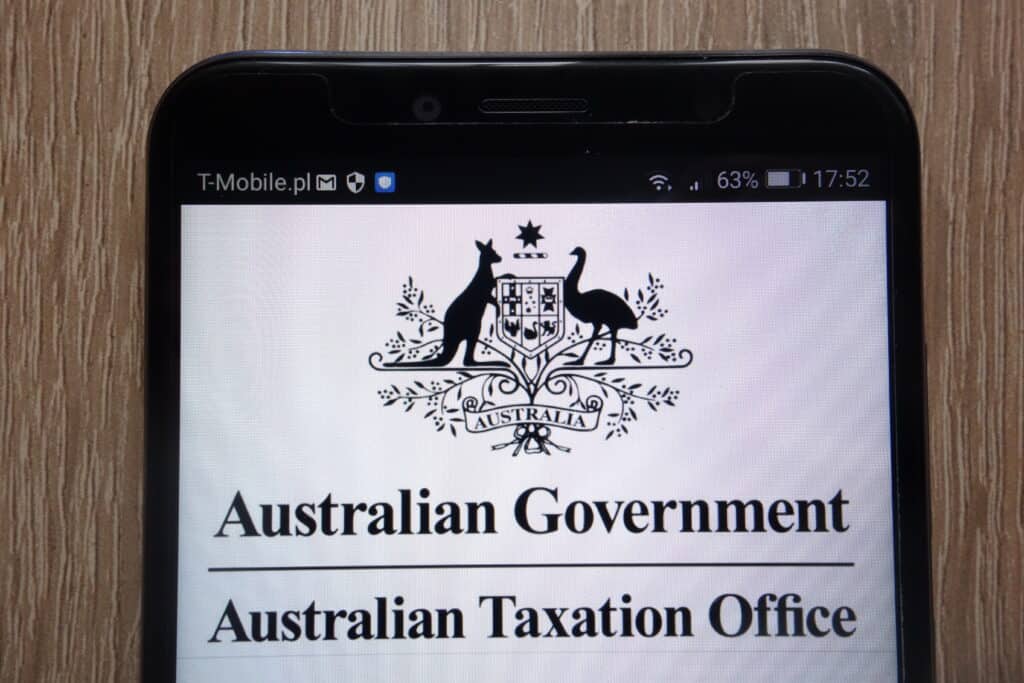
Key Takeaways:
- The Australian Taxation Office (ATO) is intensifying efforts to enforce tax compliance by mandating cryptocurrency exchanges to provide personal and transaction details of about 1.2 million traders, aiming to combat tax evasion.
- This initiative is part of a larger push to enhance scrutiny following the FTX collapse, including prosecuting illegal token sales and considering new licensing for crypto exchanges.
- The ATO has expanded its tax regulation scope to cover transactions involving wrapped tokens and decentralized lending protocols, reflecting its commitment to adapting regulatory measures to the evolving cryptocurrency landscape.
In a significant move aimed at enhancing tax compliance, the Australian Taxation Office (ATO) will compel cryptocurrency exchanges to hand over extensive personal and transaction details of approximately 1.2 million traders.
This action is part of a broader effort by the regulator to clamp down on tax evasion among cryptocurrency users.
AUSTRALIA DEMANDS DATA ON 1.2M CRYPTO TRADERS TO COMBAT TAX EVASION
— BSCN (@BSCNews) May 7, 2024
– The Australian Taxation Office (ATO) has mandated cryptocurrency exchanges to hand over personal and transaction details of roughly 1.2 million traders.
– The ATO's protocol requires exchanges to submit… https://t.co/YPisaVSV2I pic.twitter.com/AnoArGRpDY
Recently, the ATO announced that this data collection initiative, first disclosed in April, is intended to assist in tracking down traders who have not reported their cryptocurrency transactions.
The requirement from the ATO mandates that exchanges submit information such as names, addresses, birthdates, and detailed records of transactions.
This effort is to ensure adherence to capital gains tax obligations arising from sales of crypto assets.
Sources including the Australian Financial Review highlight that the surveillance initiative is designed to bolster the ATO’s ability to audit compliance rigorously.
It will focus on traders’ activities, such as converting cryptocurrencies to fiat currency or using them for purchases of goods and services, which should have been reported under tax regulations.
The push for stricter regulation has intensified following the collapse of the crypto exchange FTX, spotlighting the need for enhanced oversight in the cryptocurrency sector.
The Australian Taxation Office has sought personal data and transaction details from up to 1.2 million accounts at cryptocurrency exchanges, including dates of birth, phone numbers, social media accounts, bank accounts, wallet addresses and other transaction details to crack down…
— Wu Blockchain (@WuBlockchain) May 7, 2024
In response, the Australian government has taken a firm stance, prosecuting entities for selling tokens without proper licenses and collaborating with banking partners to block payments to crypto exchanges.
Moreover, a new licensing framework for cryptocurrency exchanges is currently under consideration.
In a related development last year, the ATO expanded the scope of its capital gains taxation to include transactions involving wrapped tokens and interactions with decentralized lending protocols, thereby broadening its regulatory perimeter in the crypto space.
📌 ATO demands personal data and transaction specifics from 1.2 million crypto accounts to enforce tax compliance.https://t.co/coWTk5b6eH
— Coincu News (@Coincuofficial) May 7, 2024
This comprehensive approach by the ATO reflects an ongoing commitment to ensuring that all taxable activities, especially in the rapidly evolving domain of cryptocurrencies, are transparent and comply with existing tax laws.

